Photo Credit: Bloomberg News
College of Liberal Arts students, faculty, and alumni make a powerful impact on their communities, creating positive change and bringing the land-grant mission of Colorado State University to life. The liberal arts are entrenched in human connection, creation of meaning, and advocacy, so it’s not surprising that a degree in the liberal arts uniquely positions our alumni to better the communities around them.
In a society where a national discourse around the STEM fields dominates, the following stories demonstrate that a degree in liberal arts is not only intrinsically relevant but also marketable. From an alumna who is making waves in the male-dominated video game industry, to partnerships that aim to preserve indigenous arts and epistemology in South Africa, to a student inventor who has made life a little more comfortable for those in wheelchairs—when passion and academics combine, the liberal arts community changes lives.
Halo effect: Ross wants more women in video gaming industry
Journalism alumna Bonnie Ross (’89) is making a big impact through her leadership as a female executive in the male-dominated gaming industry. Ross is a vice president at Xbox and head of 343 Industries, the studio that directs the popular Halo video game franchise. In 2014 she was named one of the 10 most powerful women in video games by Fortune magazine, and recently led the biggest Halo launch of all time.
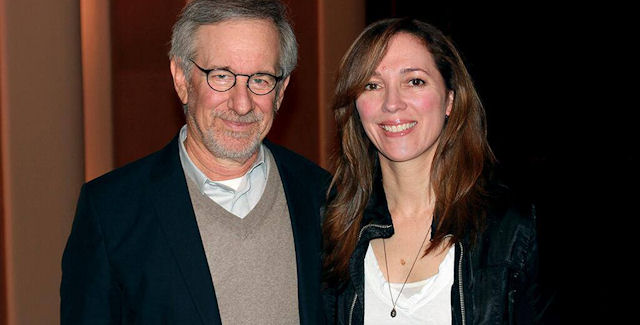
Reminding her male colleagues that adult women account for 36% of gamers, Ross has fought against sexism and advocated for more women in the gaming industry. She has worked hard to make video games reflective of the audience that plays them, and Halo 5 prominently features fully realized female characters.
The marketability and relevance of a liberal arts skillset is demonstrated by Ross, who began her college career in the sciences but was frustrated by the dearth of women in the STEM fields. She instead found refuge in the liberal arts, and credits her success to her technical journalism degree and accompanying internship.
Click here to read more about Ross’ journey.
Team travels to South Africa to chronicle indigenous art, culture
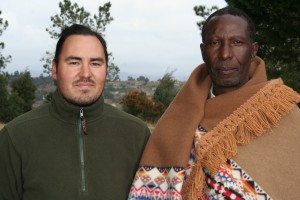
When art history professor David Riep went to South Africa for a friend’s wedding, he didn’t intend to stay. But he wanted to learn more about the art and culture of the indigenous South Sotho people, so his short trip stretched for two years as he built relationships with the community. Future trips brought him back, and in total, Riep spent over 5 years with the South Sotho people engaging in collaborative, community-based research with the aim of preserving indigenous art, history, and customs.
Motivated by a desire to show his gratitude to the community, Riep returned to QwaQwa, South Africa, this past summer. This time he brought students and faculty from the Art and Art History department and LEAP Institute for the Arts, prepared to complete several projects that would have a lasting impact on the community.
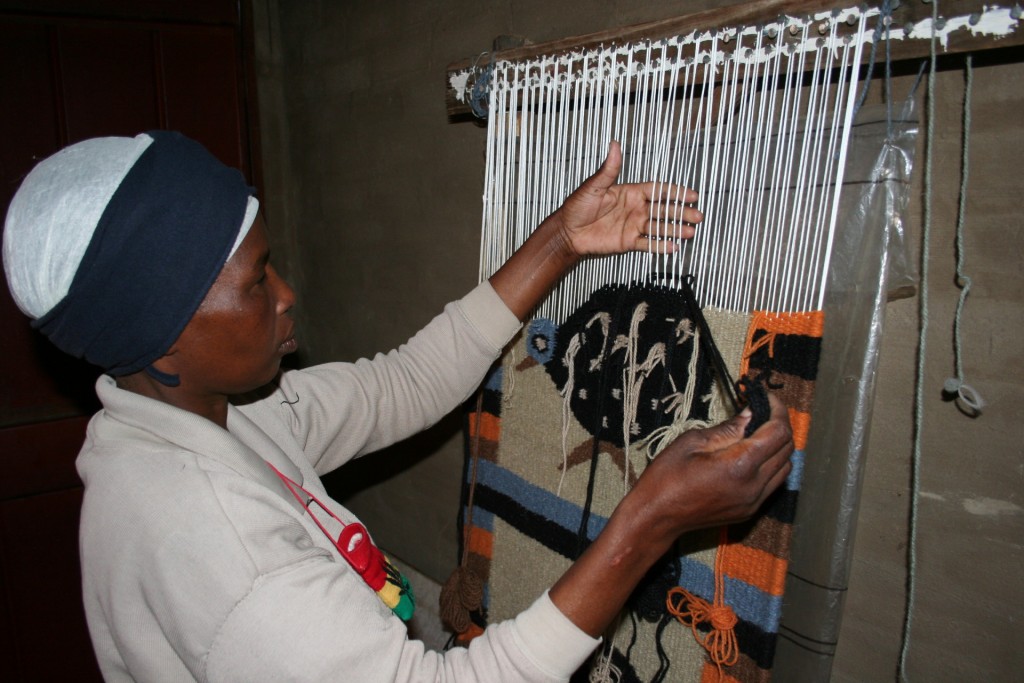
The group worked with a local clan to make plans to restore a small mountaintop museum, which is not only a repository for historical pieces and artwork but also a cultural space where South Sotho gather annually to recite their oral history. Another project involved developing new materials for the “Africa Meets Africa” curriculum, which is grounded in indigenous epistemology and teaches schoolchildren concepts like algebra and geometry through traditional mural paintings and beadwork design.
Click here to learn more about the team’s projects and efforts.
Ethnic Studies students return to Fort Morgan
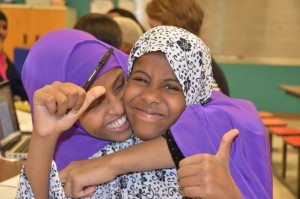
Students in Eric Ishiwata’s ethnic studies courses have a unique opportunity to apply what they are learning in the classroom to real world situations. For over a year Ishiwata and his students having been moving beyond the classroom to focus on community building in Fort Morgan, Colorado. This semester, students in his experimental course on hate crimes have been working with Fort Morgan High School teachers and students to minimize bullying and bias incidents.
Fort Morgan is one of the most diverse cities in Colorado, due in large part to the recruitment of east African refugees as workers. Cargill, the biggest employer in the county, has a workforce made up of 60% Latinos and 30% East Africans. Cargill has worked proactively to help refugee workers acclimate to their new home, while also working with the community to create a welcoming atmosphere.
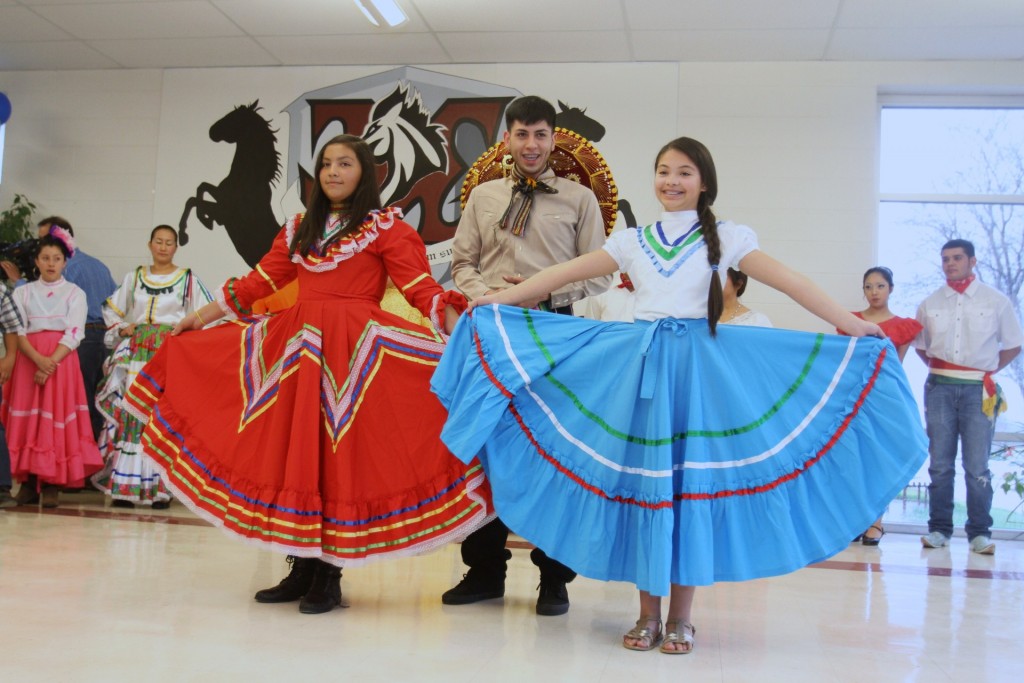
Ishiwata engages in community-based participatory research, in which the researcher works collaboratively with a community to ensure a balance between research and action for the mutual benefit of all project partners.
Click here to read more about Ishiwata’s work in Fort Morgan.
Economics student’s wheelchair invention inspired by personal experience
When John Morris was a high school senior, he was involved in a snowboarding accident that left him paralyzed from the neck down and in the hospital for over 4 months. He survived, and he had to relearn how to perform basic tasks—from a wheelchair.

His college plans delayed but not derailed, Morris came to CSU to study in the Department of Economics, graduating in May 2015. During his time on campus, he found greater independence when he moved from a manual wheelchair, which had to be pushed by an attendant, to a powered wheelchair, which he could control.
After the switch, he realized the suspension system on his powered chair made his ride much more comfortable, and an idea was born. In 2014, Morris became founder and CEO of Quadshox, a company which manufactures a rear wheel suspension retrofit kit for manual wheelchairs. The affordable price tag means this invention has the potential to impact many lives through improvements in comfort and quality of life.
Click here to learn more about John and the QuadshoX team.
The Community Literacy Center reaches out
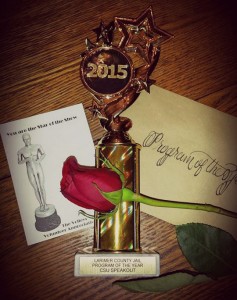
Every person has a story to tell, and giving voice to these stories can be empowering and healing, particularly for those with a history of trauma and marginalization. The Community Literacy Center in the Department of English recently celebrated 10 years of working to empower local prisoners and at-risk youth through SpeakOut! writing workshops. The wonderful creative works that come out of these workshops are shared via print and digital communications, challenging stereotypes of incarcerated or institutionalized youth and adults in our community.
The Community Literacy Center worked with over 200 writers for two issues of the SpeakOut Journal over the last academic year, and was awarded “Program of the Year” by the Larimer County Detention Center inmates, officers, and staff at the November volunteer awards banquet.
Click here to learn more about the Community Literacy Center on the English department blog.
